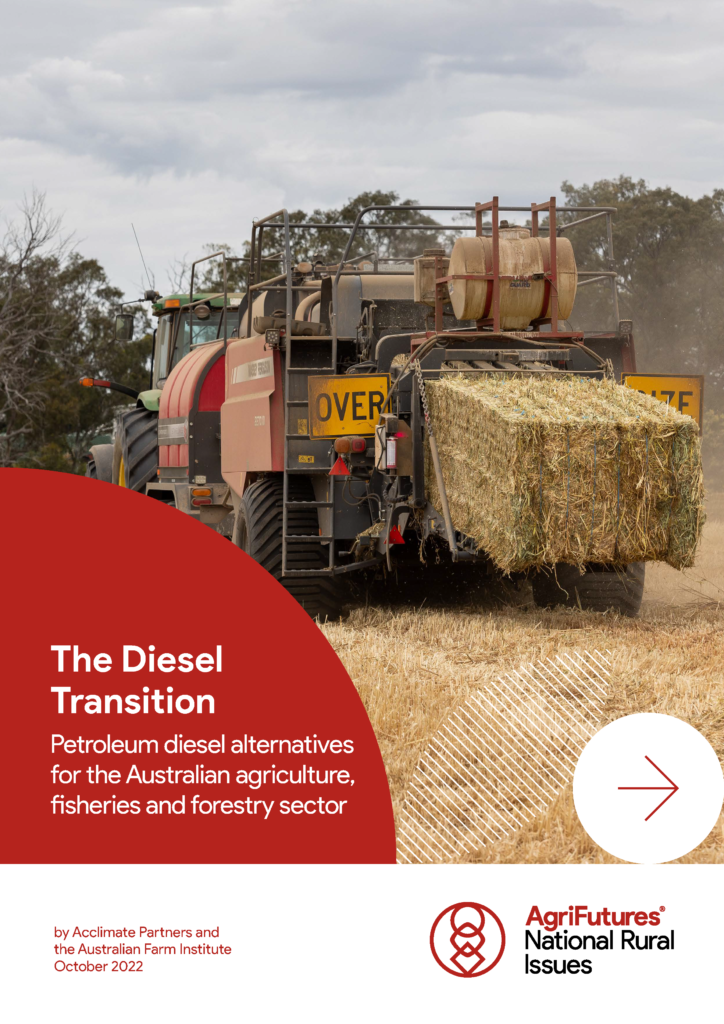Agriculture has a significant role to play in helping the country meet the Australian Government’s target of a 43% reduction in emissions by 2030, and net zero emissions by 2050. Considered one of the hard-to-abate sectors, transformative change needs to occur across agriculture, fisheries and forestry to achieve this. Concurrently, the growing global demand for food and the Australian Government’s ambitious Ag2030 vision will increase production, undoubtably leading to an increase in the sector’s energy use.
The consumption of energy across agriculture, fisheries and forestry is heavily biased to petroleum diesel fuels, and recent price volatility and diesel fuel security concerns have highlighted just how vulnerable farmers, fishers and foresters are because of this reliance. While there are many hurdles that must be overcome to enable the transition away from diesel-powered equipment, there is also significant opportunity associated with shifting to more secure and affordable energy alternatives. Transition will require a long lead time and provisions to support
incumbent systems.
To help us better understand what alternative energy options are most suitable for Australian agriculture, fisheries and forestry industries, and to comprehend what is required to support this transformational change, AgriFutures Australia engaged Acclimate Partners to review how long change might take and what regulations and policies are required to ensure industries can continue to function during the transition.
Given the complexity of moving away from diesel, this report considers the services and skills required to ensure a smooth transition, and informs industry, policymakers and all levels of government about the policy settings required.
This project has involved significant regional and industry consultation, including with other diesel-reliant industries such as mining and freight. The report considers what farmers, fisheries and foresters’ current and future needs are, and the intersection with the specific regions in which they operate.
While we acknowledge a national diesel transition plan requires further development, this report provides initial priority areas for consideration, and we see it as a catalyst to engaging in sector-wide discussion about the diesel transition.





